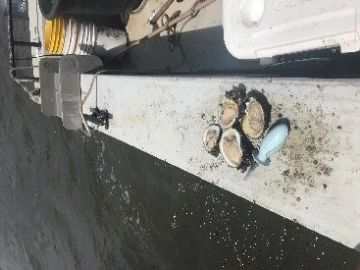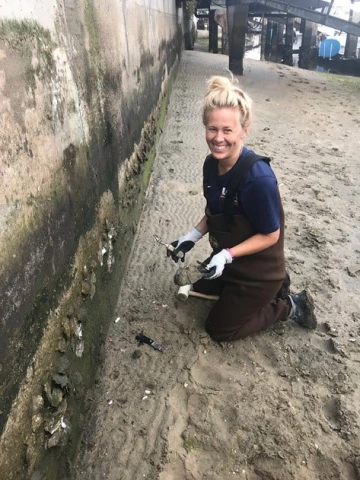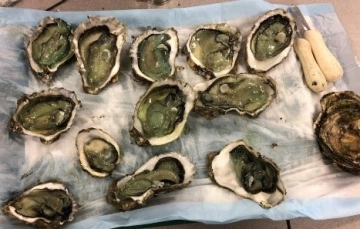The World is My Oyster
Over the past eight years, I have lived in five different states as I have been pursuing my dream of becoming an environmental microbiology and water quality research scientist.

As a native Floridian, I ventured to Michigan during my undergraduate degree and became interested in molecular genetics research. I focused on confocal microscopy analysis of tau protein in fruit flies to better understand potential drivers of Alzheimer’s disease and was a collegiate soccer player. After I graduated, I moved to rural Colorado to serve a term with AmeriCorps and work in a county public health office as a tobacco specialist. I provided math and literacy intervention to students in grades K-12 and ran an after-school program. While working in the county public health office, I was influential in changing the tobacco policy in the school district. I realized the importance of public health and headed to Louisiana for my MSPH.

It was during my time at Tulane University that I was introduced to microbial water quality and food safety. I began my research in the field with an evaluation of coliphage as a fecal indicator at recreational sites on Lake Pontchartrain to assess human health risk. My projects transitioned to an analysis of Vibrio spp. in oyster harvesting waters in Southeastern Louisiana. My masters work left me with a heightened interested in environmental drivers of water quality, Vibrio spp., oysters, and health.

In 2018, I started my PhD studying Environmental Health Science with a focus on microbial water quality and quantitative microbial risk assessment (QMRA) through the Mel and Enid Zuckerman College of Public Health. The interconnectedness of microbial water quality and human health from my MSPH research intrigued me to the point of taking the next step. The primary focus of my dissertation is to expand scientific knowledge of the interactions between shellfish, microbial water quality, environmental factors, and public health. Globally, there is no consensus on the interactions between oysters, Vibrio, and environmental parameters and I am leading a study to represent this state using GIS and comprehensive literature review. The current FDA policies on oyster harvesting are based off Atlantic Oysters from studies performed on the East and Gulf Coasts. Therefore, I will target my oyster research in Southern California, a geographic area increasing oyster production but with limited health risk information from Vibrio spp. I will identify implications for human health by coupling oyster research in Southern Californian estuaries and in simulated marine environments with QMRA using qPCR, FDA culture-based methods, and statistical analysis to evaluate the prevalence and persistence of pathogenic Vibrio from oysters harvested in Southern California. My laboratory findings will influence a QMRA model and assess regulatory standards.
This work is a collaboration with Southern California Coastal Water Research Project (SCCWRP). The collaboration between the University of Arizona and SCCWRP provides a platform for groundbreaking Vibrio research on the West Coast and the ability to influence current oyster harvesting policy in Southern California. I will use my research to evaluate existing policy to reduce human health risk from exposure to pathogenic Vibrio. The opportunity to impact the community was influential in my choice to pursue a PhD in Environmental Health Science.

I hope to use the culmination of environmental health, ecology, microbiology, and risk assessment skills and knowledge to have a career focused on microbial water quality and human health. I hope my career allows the opportunity to continue to do research with microbial pathogens.

